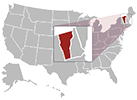
Perhaps you know you want to work in the healthcare field, but where do you start?
If you don’t know, perhaps try learning how to become a pharmacy tech in Vermont.
Page Navigation
Licensing Requirements to Become
In 2018, the Vermont Secretary of State’s Office of Professional Regulation sent an email to the Board of Pharmacy Licensees about proposed requirements for people who want to serve as a Pharmacy Technician in the state.
A concern expressed pertains to making sure students receive the education that prepares them for national certification.
Workforce-based training would fall under this.
In 2022, the Vermont Office of Professional Regulation announced who must register as a Pharmacy Technician.
The State also differentiates between interns, non-residents, and full-time resident employees.
Moreover, they provide renewal information. Each category of Pharmacy Techs has unique requirements.
When looking for a Pharmacy Technician training program, make sure it lines up with state recommendations.
It’s also wise to check with the Pharmacy Technician Certification Board (PTCB).
They’re the ones who sponsor the Certified Pharmacy Technician (CPhT) and Advanced Certified Pharmacy Technician (CPhT-Adv) credential exams.
Furthermore, PTCB provides the Compounded Sterile Preparation Technician (CSPT) Certification.
You also can seek similar credentials from the National Pharmacy Technician Association (NPTA).
5 Pharmacy Technician Schools in Vermont
You won’t find many Pharmacy Tech schools located in Vermont.
The good news is you can speak online learning options. You also can prepare for related careers.
1. Vermont Tech

Vermont Tech has a variety of health care certificate programs.
You can study for a Medical Assisting, Phlebotomy, or Patient Care Technician position, for instance.
Supplement your hospital or doctor’s office Pharmacy Technician training or talk to an academic advisor about your career goals.
2. Rasmussen University
Two popular pharmacy technician exams you can prepare for at Rasmussen University include the Pharmacy Technician Certification
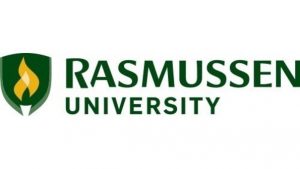 Examination (PTCE) or the exam for the certification of pharmacy technicians (ExCPT).
Examination (PTCE) or the exam for the certification of pharmacy technicians (ExCPT).
You can graduate here in about nine months.
This training allows you to experience real-life scenarios in a virtual practicum learning environment.
This training also prepares you to handle medications and control inventory using Healthcare software.
Most importantly, you will gain experience interacting with patients who have questions about the prescriptions.
3. Albany College of Pharmacy and Health Sciences
Albany College prepares people for a Pharmacy career.
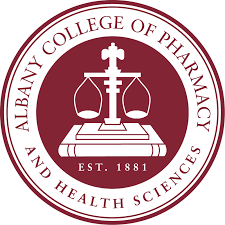
However, they also provide continuing education classes covering subjects, such as how to overcome the opioid epidemic.
It’s an excellent place to start out.
You can seek entry-level certifications while studying to become a licensed pharmacist.
If you prefer to enroll in a degree-seeking program, this is the place for you.
There’s also a place for you here if you have already graduated.
4. Miller-Motte College
Miller-Motte College gets right to it.
They give you the training that helps you meet your healthcare career goals.
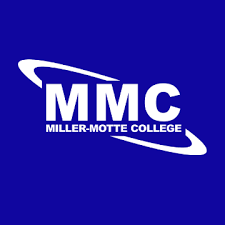
You will receive an introduction to pharmacy, learn how to classify drugs, become used to using computer applications, and prepare for your national certification exam.
You can use your online pharmacy tech training from this school in conjunction with any chance you have to gain hands-on experience taking care of real patients.
With this training, you’re more than likely will be on your way to having a full-time job within a year.
5. V-Techs
This online resource connects you with online pharmacy training that’s available all across the nation.
Here, you will gain access to information about classes based on your level.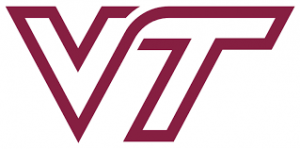
For instance, maybe you’re ready to be a level I Pharmacy Technician.
If so, follow the links provided on this website that could lead you to a full-time position in less than a year.
Pharmacy Technician Schools in Vermont – Summary Table
Top 5 Schools in Vermont
| School Name | Address |
|---|---|
| Vermont Tech | 124 Admin Dr, Randolph Center, VT 05061 |
| Rasmussen University | Online |
| 3. Albany College of Pharmacy and Health Sciences | 261 Mountain View Dr, Colchester, VT 05446 |
| Miller-Motte College | 3901 Capital Blvd #151, Raleigh, NC 27604 |
| V-Techs | Online |
Pharmacy Technician Salary in Vermont
Annual Salary Range:Average Salary of Pharmacy Technicians in Vermont
| City Name | Salary |
|---|---|
| Burlington | $36,700 |
| Essex | $36,698 |
| Rutland | $37,000 |
| Colchester | $36,700 |
| South Burlington | $36,700 |
| Bennington | $37,701 |
| Brattleboro | $37,800 |
| Hartford | $38,200 |
| Milton | $36,700 |
| Barre | $36,400 |
Regional Salary in Vermont
| Region | Employed | Avg. Annual Salary | Avg. Hourly Pay | Top 10% Annual Salary | Bottom 10% Annual Salary |
|---|---|---|---|---|---|
| Burlington-South Burlington, VT | 400 | $41,640 | $20.02 | $53,150 | $35,820 |
* Employment conditions in your area may vary.
Frequently Asked Questions
What does a Pharmacy Technician do all day in VT?
They read prescriptions, and they follow the licensed pharmacists orders on how to fill those prescriptions.
A pharmacy tech position requires data entry knowledge.
If you take on this role, you’ll spend quite a bit of time processing patient paperwork and handing them their medicine at the pharmacy counter.
How much does it cost to train for a pharmacy technician position in Vermont?
Costs vary, depending on the type of training you receive.
If you want to find a job as soon as possible, you can sign up for the certificate training which you could complete in less than a year.
This usually doesn’t cost any more than $5,000 or less.
You may make a little bit less of a salary after certificate training than a degree-seeking student though.
However, you could end up working in less than a year and not have a $10,000 or more per year bill to pay.
What is a typical pharmacy technician training path in Vermont?
You might consider exploring pharmacy tech programs even while you’re still in high school.
Then, you would compare the information you would learn in your classes along with the information you might receive about certifications you can achieve.
You would, of course, need to finish high school first.
Then, enroll in a post-secondary program that teaches you the curriculum found on your certification exam.




